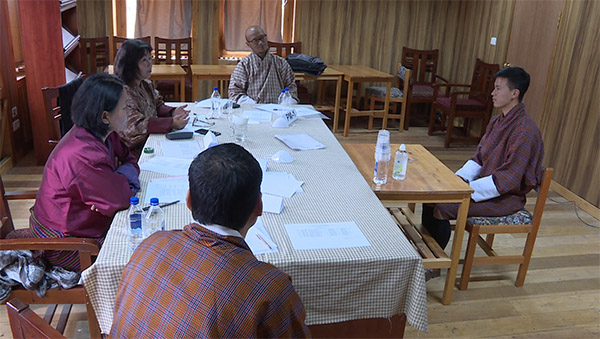 Starting this year, admissions for the Bachelor of Education (B.Ed) programmes will be carried out before the admissions in other undergraduate programmes of the RUB colleges. This is in line with the new qualitative selection system the Paro College of Education is implementing to attract high performing class XII graduates to consider teaching as their first choice. The college will also decrease the intake from over 200 candidates to 170 based on the education ministry’s teacher requirement projection.
Starting this year, admissions for the Bachelor of Education (B.Ed) programmes will be carried out before the admissions in other undergraduate programmes of the RUB colleges. This is in line with the new qualitative selection system the Paro College of Education is implementing to attract high performing class XII graduates to consider teaching as their first choice. The college will also decrease the intake from over 200 candidates to 170 based on the education ministry’s teacher requirement projection.
The college is currently conducting panel interview for the 200 shortlisted candidates to assess the candidates’ communication skills, creativity and critical thinking among others. The college will admit just 100 candidates into the B.Ed primary programmes and 70 into the B.Ed Dzongkha programme. The college received an overwhelming response from some 6,000 students for the 170 slots.
Sonam Choden, a class XII graduate, despite securing 75 per cent prefers teaching over other professions. “I opted to go for teaching instead of other options. This is because my parents are supportive of this idea and also it has been my interest for a long time to join the teaching profession. It’s the teacher who is responsible for producing other professions like scientists and doctors. Similarly, if and when I become a teacher, I would like to inspire others to do the same,” said Sonam.
The aspiring teachers are hopeful to contribute positively to the country’s education system.
“I opted for teaching because I want to change people’s perception towards the teaching profession. Generally, people consider teaching as the last option. So I want to change that mindset of people. To be honest, the education system in our country is not so good. I have a hope that I can bring some changes to the education system,” said Tashi Yangzom.
“I scored 80.5 per cent in class 12 and I opted for teaching because it was my ambition since I was in primary school. And if I get the opportunity, it would be a dream come true for me. I feel that I am best suited for teaching. I feel that teacher is someone who can change your life and if I can change somebody’s in a positive way even in the smallest way it would be like a lifetime achievement for me. And I believe teaching is a satisfying job,” added Sonam Yangki.
The Dean of Paro College of Education Kezang Sherab (PhD) said, in the past, the college used to admit high school graduates seek admission the college used to get students who took teaching as the last resort after failing to get admission to other colleges.
“With this, we really want to send a message out into the society that teachers are really important in terms of providing quality education. No matter how good the curriculum or how best the infrastructure, without quality teachers, the quality of education will be hampered. So our main goal is to attract quality high school graduates, not only in terms of academics but also with strong character, who are passionate, who are highly motivated to become teachers. So that’s why we are having this interview prior to all other colleges.”
Besides the implementation of the new qualitative selection system, the college has also proposed the education ministry to initiate systemic reforms in the education sector.
“A few of the key reform initiatives that we have proposed include increasing the stipend while they are in the college for the four-year training programme. And then second, we have proposed to both the RCSC and the education ministry that we could do away with the examination after the four-year programme and make it guaranteed employment for these candidates. Currently, the B.Ed graduates have to sit for the RCSC examination after their graduation. Now that we are getting quality candidates the quality is also going to be accountable. We are planning to give them quality training for four years and then in a way we are going to guarantee that each one of these candidates is ready, prepared and highly motivated to join our school system,” said Kezang Sherub.
The new system is expected to enhance the status of the teaching profession in the country. The 2019 pay hike made teachers the highest-paid civil servants in the country.
Sonam Pem








